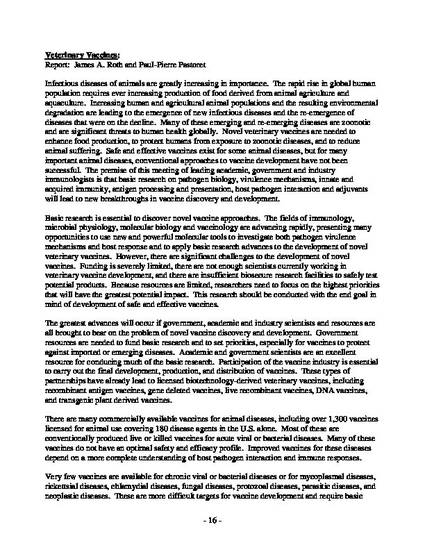
Article
Veterinary Vaccines
Veterinary Microbiology and Preventive Medicine Reports
Document Type
Report
Publication Date
1-1-2007
Granting or Sponsoring Agency
United States Department of Agriculture
Disciplines
Abstract
Infectious diseases of animals are greatly increasing in importance. The rapid rise in global human population requires ever increasing production of food derived from animal agriculture and aquaculture. Increasing human and agricultural animal populations and the resulting environmental degradation are leading to the emergence of new infectious diseases and the re-emergence of diseases that were on the decline. Many of these emerging and re-emerging diseases are zoonotic and are significant threats to human health globally. Novel veterinary vaccines are needed to enhance food production, to protect humans from exposure to zoonotic diseases, and to reduce animal suffering. Safe and effective vaccines exist for some animal diseases, but for many important animal diseases, conventional approaches to vaccine development have not been successful. The premise of this meeting of leading academic, government and industry immunologists is that basic research on pathogen biology, virulence mechanisms, innate and acquired immunity, antigen processing and presentation, host pathogen interaction and adjuvants will lead to new breakthroughs in vaccine discovery and development.
Rights
Works produced by the U.S. Government are not copyrighted within the U.S. The content of this document is not copyrighted.
Language
en
File Format
application/pdf
Citation Information
James A. Roth and Paul-Pierre Pastoret. "Veterinary Vaccines" (2007) Available at: http://works.bepress.com/james_roth/52/

This report is from Advances in immunology and vaccine discovery report of the United States-European Commission workshop (2007): 16.